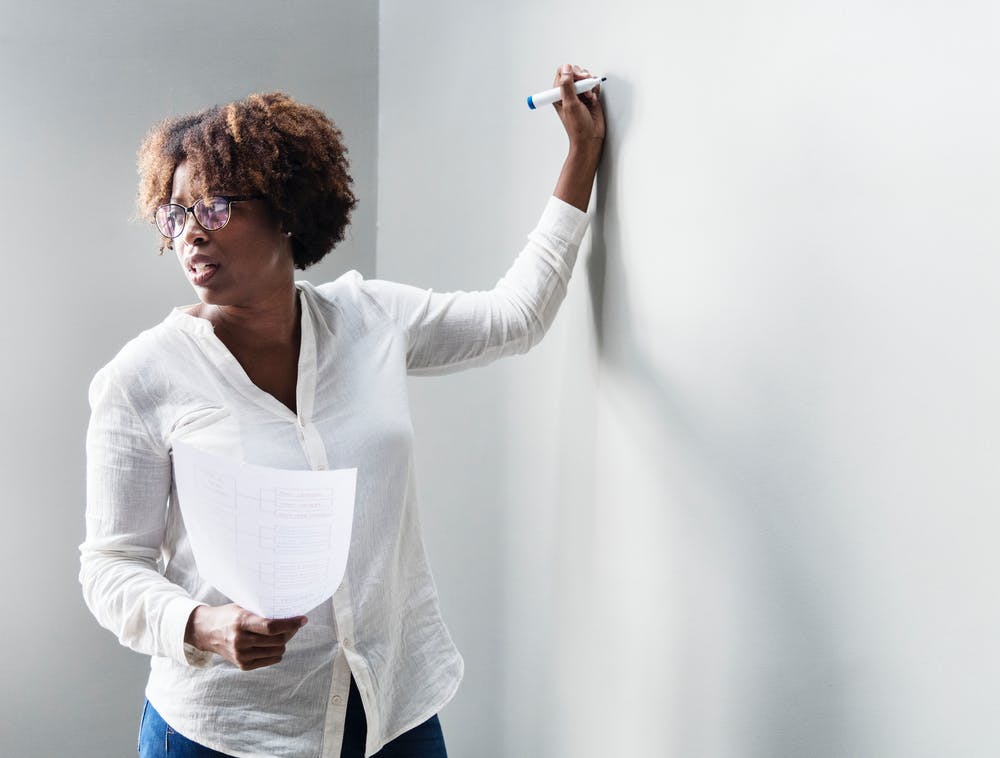Teachers indeed gain more knowledge when working than they do while studying. However, if you’re starting in this field, there are a few essential books that you should read. Open an Amazon account, grab your highlighter, and curl up with a few of these treasures right away. Here are the top 10 books for brand-new educators:
Few natural forces are as powerful as a committed instructor. You are correct, Julia G. Thompson. She questions how we manage to multitask while entertaining and nurturing others. She briefly reviews some of the essential concerns affecting teachers today in her book, “The First-Year Teacher’s Checklist.” Highlights include establishing a strong rapport with your pupils, excelling above your peers in professionalism, and creating engaging lessons that will engage all kids. Keep this handy resource nearby your desk all year long.
We lose sight of the fact that we are “the most important aspect in the classroom,” according to Steve Springer, who begins this book that has been a steadfast companion for many instructors. Without us, learning cannot occur. He continues by warning us not to overwork ourselves and always to remember to take care of ourselves. He playfully deconstructs the anatomy of a teacher, from the ears that have the compassion to the hearts that create nurturing settings to the eyes at the back of their skulls. Additionally, you’ll discover pupils at every school level and how their anatomy often reveals their preferred learning method.
You’ve probably seen the fantastic Hilary Swank movie, but the story began in room 203 with a first-year instructor. Erin Gruwell wasn’t ready for the harsh realities her students had to deal with, like seeing violence, drug use, and dysfunctional families up close. Gruwell asked her students to create their own stories in response to questions from students about how a particular book related to their own lives. She made a classroom community centered on the values of fostering tolerance, promoting cooperation, utilizing past knowledge, demanding accountability, and celebrating accomplishments through the use of these stories.
Although teaching is a career-long job, the initial years in the classroom are typically the most challenging. This anthology of essays will assist teachers in maintaining the enthusiasm and principles that inspired them to become teachers. You’ll hear sage advice on negotiating the educational system, building beneficial connections with coworkers, and interacting with children and families from various backgrounds.
In Julie Danneburg’s funny picture book, we are all transported to a familiar setting—the beginning of a brand-new, uncharted journey. Sarah Jane Hartwell isn’t interested in getting up and going to school. She has no acquaintances and expects she will detest it. She gradually faces her worries thanks to Mr. Hartwell. Just consider all the new pals you’ll make, he advises. We are taken on a voyage through her first day’s shenanigans by the vivid drawings. It’s a well-known tale with a heartwarming twist in the end.
This outstanding work is accessible to readers who are not special education teachers. Starting off, Carla Shelton and Alica Pollingue quote renowned educator Annie Sullivan. “All things are transformed, my tiny pupil, for the knowing light has flashed onto his mind.” Many instructors leave the job after a year or two because they do not notice the difference they make straight immediately. This book helps you identify a mentor teacher to enlist for assistance and set aside time for reflection. Shelton and Pollingue will demonstrate instructional techniques for maximizing student performance and designing alternative assessments for all students.
With this resource linking teacher preparation programs to first-year teaching experience, Karen Bosch seeks to better prepare instructors for transitioning from campus to classroom. She believes that if a teacher is effective, student learning will improve. This book stands out because it starts with the application process and advice on how to get your first teaching job. It’s time to draught your resume and put together a comprehensive portfolio.
You have probably heard of the guided reading program developed by Fountas and Pinnell. All new educators should read this. This book explains how teachers can give beginning readers content tailored to their unique learning requirements. The writers’ research on early literacy is extensive. The book also emphasizes the significance of classifying students according to assessment results.
Vanessa Levin wants to be your “teacher next door” for any issues you face in the classroom, regardless of the grade you teach. She regrets the arduous hours, meager compensation, and scarcity of materials and resources we meet. She claims that if Levin can make your experience as a teacher just a little bit simpler, she will feel successful. She starts in Feng Shui fashion. Everything begins with the room’s design, giving pupils a welcoming and exciting learning space. According to Levin, kids’ brains will anticipate learning to be beneficial if a teacher is successful. It is a tremendous gift in and of itself that young people have trusted us with their ideas.
Even just reading the dedication page will make you shiver. Harry K.Wong acknowledges his parents, who wished he would pursue a career in brain surgery. “I exceeded their expectations and became a teacher and a scholar,” he boasts. A principal told her that she required “improved classroom management abilities,” according to Rosemary K. Wong.
The book, written by these bright brains and translated into five other languages, is utilized in over 2,114 college classes, over 120 nations, and thousands of school districts. The foundational notion of this motivating piece is that every effective teacher has a plan for the first day of class. Additionally, “having positive expectations for student achievement, being an extraordinarily competent classroom manager, and knowing how to create lessons for student mastery” are three qualities that make a teacher effective.

